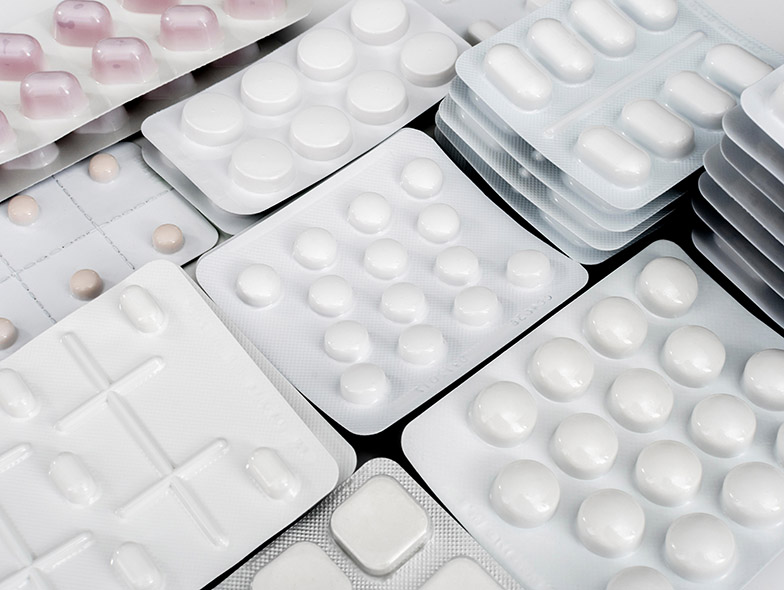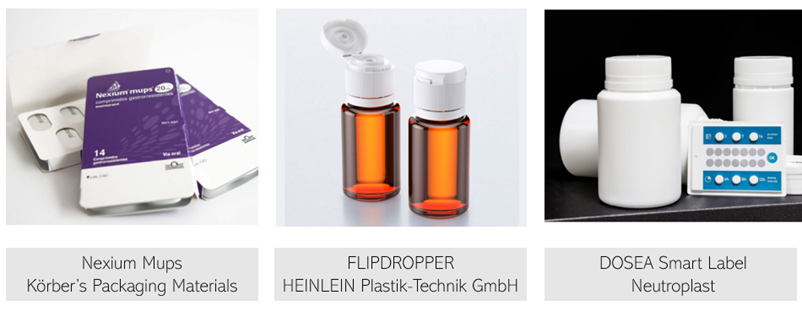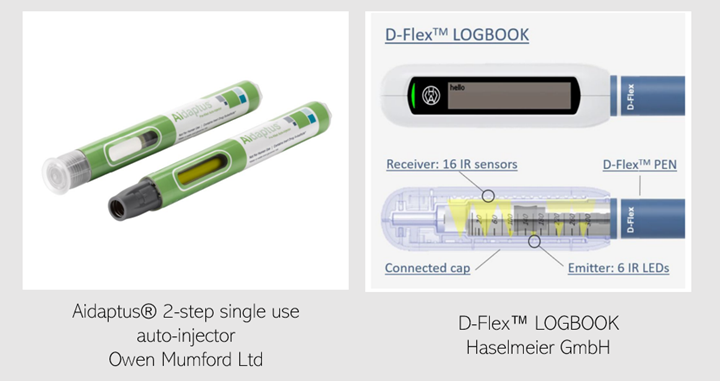
Pharmapack 2022 is just around the corner and judging for its annual awards is already underway. Every year a jury of industry experts assesses a range of products making waves in packaging and drug delivery and ultimately crowns a handful of winners across several categories.
As a reminder of the outstanding innovations on display at Pharmapack 2021, we caught up with Dr Pascale Gauthier, pharmacist, PhD (D.Pharm) at Auvergne University who sits on the jury for the Pharmapack and CPhI awards. Dr Gauthier wrote the following reflection on last year’s event.
Last October, Pharmapack returned as a hybrid event with more than 4,100 online attendees and 3,000 on-site in Paris, France. Once again it set out to highlight innovations in pharma packaging and drug delivery, offering sessions on digital health, connectivity, patient centricity, sustainability and injectable drug delivery – all areas posing challenges within the sector.
While the event covered a broad range of topics, one central theme shone through – the need for a ‘less is more’ approach in packaging. This can be seen reflected in submissions to the 2021 Innovation Gallery.
Last year the Pharmapack Awards jury said it was looking for ‘eco and user-centric design’ in packaging products. It said there were ‘several entries which could fit many of those criteria’, and even awarded a commendation in addition to the Primary Packaging award in recognition of the stiff competition.
One such entry was from Swiss firm Körber, who submitted a scaled-back cardboard medical wallet as an alternative to wallet packaging. The wallet was resealable, maintained Körber’s branding so as not to endanger patient recognition, and featured a tamper-evident seal without an adhesive strip.
Sustainability was also a key attribute of Hoffmann Neopac AG’s Polyfoil® Mono-Material Barrier tube (MMB), a recyclable tube that offers ‘superior protection to pharma formulations’, according to the company. It was awarded the Excellence in Packaging Sustainability award for its clever design and Hoffmann Neopac was commended by the judges for making a ‘real effort’ to propose a sustainable solution.
Function was also an important metric across all categories, with many companies showcasing increasingly user-friendly designs. Flipdropper, launched by HEINLEIN Plastik-Technik GmbH, was awarded a high commendation in the Primary Packaging category for its single-piece flip top design. Featuring tamper evidence, drip function and an intuitive pull-push mechanism for dosing, it allows opening and dispensing to be completed in one easy step.
Similarly, AR Packaging’s Integrated Patient Alert Card aimed to show increased functionality in secondary packaging. The alert card was designed with patient convenience in mind, featuring an easy tear-away and small enough to fit in a wallet or pocket.
And beyond patient convenience is the issue of adherence, something many products attempted to address. The DOSEA Smart Label, for example, consists of ultrathin labels with communication and alarm systems, so that patients are notified when they miss a dose. Neutroplast and Beyondevices joined forces with CeNTI to create the product, of which there are three versions; iDOSEA BASIC, a simple low-cost product; iDosea+, which integrates an additional E-link screen; and Dosea Omni, an upgraded version with a sensor attached. All serve the purpose of optimising medical treatments and clinical trials.

Several innovative products were nominated in the area of injectable administration, which requires the highest level of regulation – a brilliant illustration that rules don’t hamper imagination. The entries emphasised adaptation, ease of use and the idea of moving ‘one step further’ in the sector, which has seen the fastest growth due to a shift to specialised medicines. Currently more than 35% of injectables are made for parenteral drug administration (2019 sales: prefilled syringes 19%, vials 11% and infusion 9%) and 26% for combination products. Last year’s injectables were displayed in the Innovation Gallery, as well as being discussed during conference sessions and learning labs. All prioritise patient centricity, which is a key factor for compliance. Adaptability also emerged as an important metric in this area, given the new era of combination therapies for chronic diseases.
Ultimately, these products should facilitate safe injection and patients should feel that they are in full control of their treatment. Avoiding user error remains a critical challenge and has spurred the proposal of ‘all in one’ products, designed to adapt depending on a patient’s dexterity levels. Take the Aidaptus two-step auto-injector from UK-based Owen Mumford Ltd, which readily adapts to a range of different drug fill volumes with no changed parts, using a self-adjusting plunger.
Considerations around safety, reproducibility and ease of use should also be balanced with those around pain, especially for better integration with long term treatments for chronic diseases. Haselmeier GmbH’s D-Flex™ LOGBOOK aims to simplify the user experience and minimise pain by combining an injection pen with a smart cap to create a drug delivery system that automatically collects treatment data at the point of care. Patient comfort is placed front and centre, as the device features an easy-dial mechanism to control injection force as well as a clear, readable display.

Patient/user safety, ease of use, patient adherence, cost-effectiveness and eco-friendliness have been key metrics for the Pharmapack Awards since their founding in 1997. These metrics continue to form the basis of jury decisions and can be seen as key characteristics of last year’s winners.
In the Routes of Administration category, EVEON collected the award for its Intuity® Spray, which offers a very accurate, airless spray or mist delivery for liquids and gels, with applications such as respiratory, dermatology and oral.
Meanwhile Nemera secured the award for connected devices and wearables with its Symbioze® smart on-body injector platform, designed to facilitate self-injection at home. The device features reusable and disposable parts and can be adapted to any pathology and drug posology.
Both awards emphasised how flexibility and adaptability, in terms of the product and users, remain the key factors for all these innovations.
Another example is ARaymondlife’s OR2Pack®, a new concept for the packaging of sterile implants, which won the Primary Packaging award. The company used customer feedback to inform the OR2Pack® design, settling on a square shape with clear colours for better use and recognition.
In the Health Products category, AcuDose® scooped the prize for patient-centric design. The unique measuring cup, created by Abbott Healthcare, dispenses an accurate daily dose of Vitamin D with every use, which the judges praised as ‘safe, simple, easy to use solution’.
UCB Pharma took gold in the Eco-Design category with its CIMZIA 2x200MG Syringe Maintenance Kit, which used actionable insights to determine its packaging size, sustainability and waste. Finally, in the Animal Health category Boehringer Ingelheim Vetmedica snagged the win with the Aservo® EquiHaler®, the first worldwide registered drug delivery device product for the treatment of severe asthma in horses.
Pharmapack 2022 is set to return this May with a raft of exciting new products in the running for an award – see a handful of this year’s nominations here.
Whatever the outcome, it’s clear the ‘less is more’ approach will be more than a short-lived trend and will instead play a central role in this new era of packaging and drug delivery.
https://www.cphi-online.com/